Filter by

Like nobody's business: an insider's guide to how US University finances rea…
"How do university finances really work? From flagship public research universities to small, private liberal arts colleges, there are few aspects of these institutions associated with more confusion, myths or lack of understanding than how they fund themselves and function in the business of higher education. Using simple, approachable explanations supported by clear illustrations, this book t…
- Edition
- -
- ISBN/ISSN
- 9781800641099
- Collation
- xi, 471 pages (1 online resource) : charts (color)
- Series Title
- -
- Call Number
- 378.38 COM l
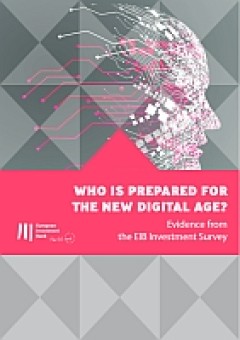
Who is prepared for the new digital age?: evidence from the EIB investment su…
In the fight against the Coronavirus, digital technology is playing an unprecedented role in the maintenance of daily life and economic and social activities, as well as the recovery of industries and business activities. The Coronovirus-pandemic could become a tipping point for digitalisation - a dawn of a new era - by accelerating the maturity of digital technology: What was once a ‘nice to…
- Edition
- -
- ISBN/ISSN
- 9789286145810
- Collation
- viii, 126p.: ill.
- Series Title
- -
- Call Number
- 658.83 WHO w
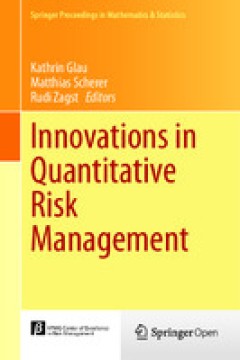
Innovations in quantitative risk management
Quantitative models are omnipresent –but often controversially discussed– in todays risk management practice. New regulations, innovative financial products, and advances in valuation techniques provide a continuous flow of challenging problems for financial engineers and risk managers alike. Designing a sound stochastic model requires finding a careful balance between parsimonious mode…
- Edition
- -
- ISBN/ISSN
- 9783319091143
- Collation
- xi, 438p.: ill.
- Series Title
- -
- Call Number
- 658.155 INN i
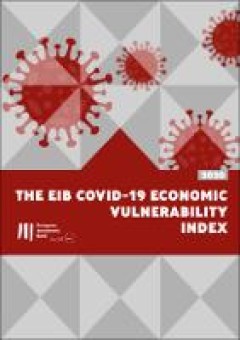
The EIB COVID-19 economic vulnerability index : an analysis of countries outs…
Which countries are most vulnerable to a virus such as COVID-19? Which countries should take the most stringent precautions to prevent the spread of such a virus? The EIB COVID-19 Economic Vulnerability Index covers countries outside the European Union and helps give us an idea of regions that need the most help. The comprehensive index takes into account risk factors such as the quality of hea…
- Edition
- -
- ISBN/ISSN
- 9789286147135
- Collation
- 16 p.
- Series Title
- -
- Call Number
- 330.9 EIB e
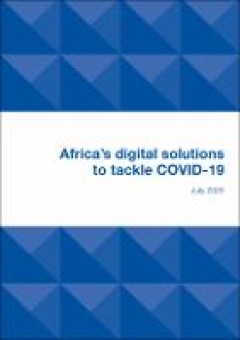
Africa’s digital solutions to tackle COVID-19
African countries are using technology in many new ways to fight the coronavirus pandemic. This report highlights some of the best digital solutions and estimates the investments required to implement the technology on a wider scale. The European Investment Bank prepared this report with the support of the United Nations Development Programme and the consulting firm BearingPoint.
- Edition
- -
- ISBN/ISSN
- 9789286147173
- Collation
- 60 p.
- Series Title
- -
- Call Number
- 330 AFR a
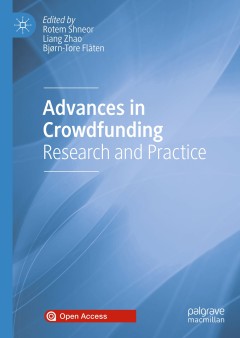
Advances in crowdfunding : research and practice
This open access book presents a comprehensive and up-to-date collection of knowledge on the state of crowdfunding research and practice. It considers crowdfunding models and their different manifestations across a variety of geographies and sectors, and explores the perspectives of fundraisers, backers, platforms, and regulators. Gathering insights from a wide range of influential researchers …
- Edition
- -
- ISBN/ISSN
- 9783030463090
- Collation
- xxvi, 531p. : ill.
- Series Title
- -
- Call Number
- 658.15224 ADV a

Determinants of financial development
As the world has witnessed the worst financial crisis and climate crisis of our age, during the period of 2007-2009, the issues surrounding the emergence and development of financial markets and carbon markets is becoming an increasingly significant area of research and debate worldwide. By engaging with recently developed methods of research and new areas of practice, this book investigates th…
- Edition
- -
- ISBN/ISSN
- 9780230302495
- Collation
- xix, 206p. : ill.
- Series Title
- -
- Call Number
- 332.042 HUA d
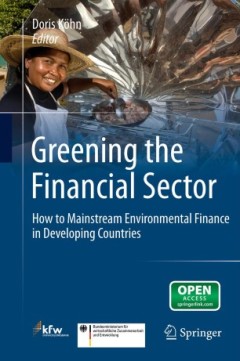
Greening the financial sector : how to mainstream environmental finance in de…
Given the manifold challenges of financial sectors in developing and transition countries, one might be tempted to believe that embarking on “green” finance is not a priority for financial systems development. However, there are a number of arguments against this view. Environmental finance, particularly energy efficiency and renewable energy (EERE) finance, can and should serve as an inter…
- Edition
- -
- ISBN/ISSN
- 9783642050879
- Collation
- xiv, 249p. : ill.
- Series Title
- -
- Call Number
- 332.1 GRE g
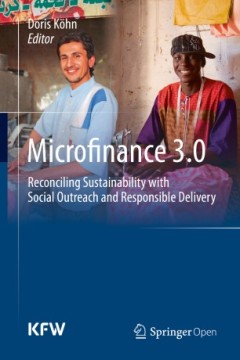
Microfinance 3.0 : reconciling sustainability with social outreach and respon…
This book focuses on the achievements, current trends and further potential of microfinance to scale-up and serve many more clients with financial services that enable them to improve their living conditions. The book asks what it takes to achieve sustainable impact: to know your clients and to understand their needs, to treat them in a fair and transparent way, and to safeguard the synthesis b…
- Edition
- -
- ISBN/ISSN
- 9783642417047
- Collation
- xi, 199p. : ill.
- Series Title
- -
- Call Number
- 330 MIC m
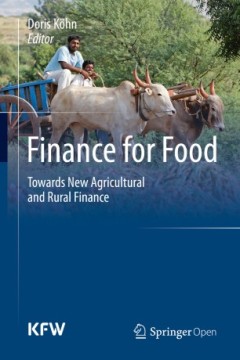
Finance for food : towards new agricultural and rural finance
This book reflects the current state of discussion about agricultural and rural finance in developing and transition countries. It provides insight into specific themes, such as commodity value chains, farm banking, risk management in agricultural banking, structured finance, crop insurance, mobile banking, and how to increase effectiveness in rural finance. Case studies illustrate various aspe…
- Edition
- -
- ISBN/ISSN
- 9783642540349
- Collation
- xii, 295p. : ill
- Series Title
- -
- Call Number
- 630.681 FIN f
 Computer Science, Information & General Works
Computer Science, Information & General Works  Philosophy & Psychology
Philosophy & Psychology  Religion
Religion  Social Sciences
Social Sciences  Language
Language  Pure Science
Pure Science  Applied Sciences
Applied Sciences  Art & Recreation
Art & Recreation  Literature
Literature  History & Geography
History & Geography